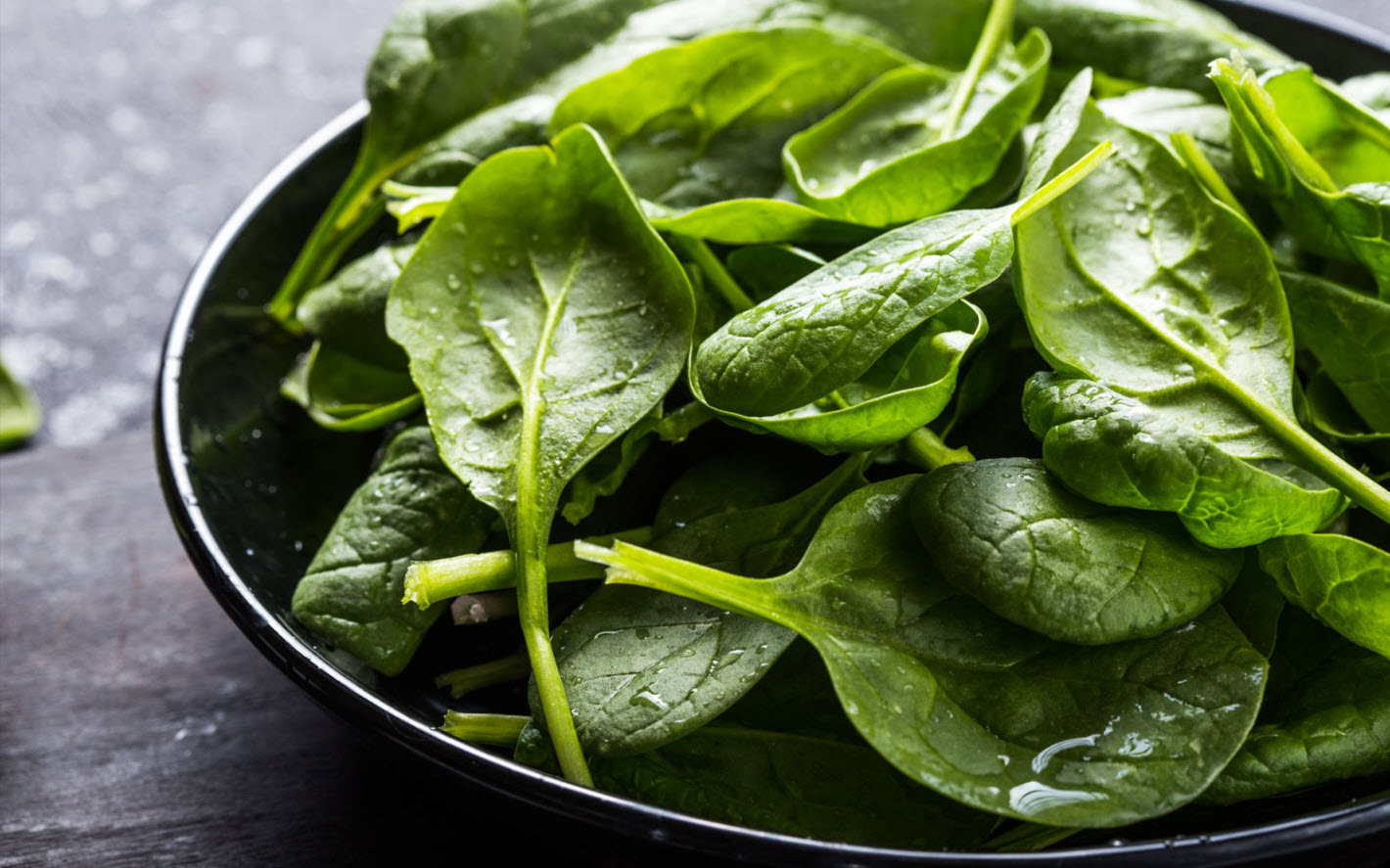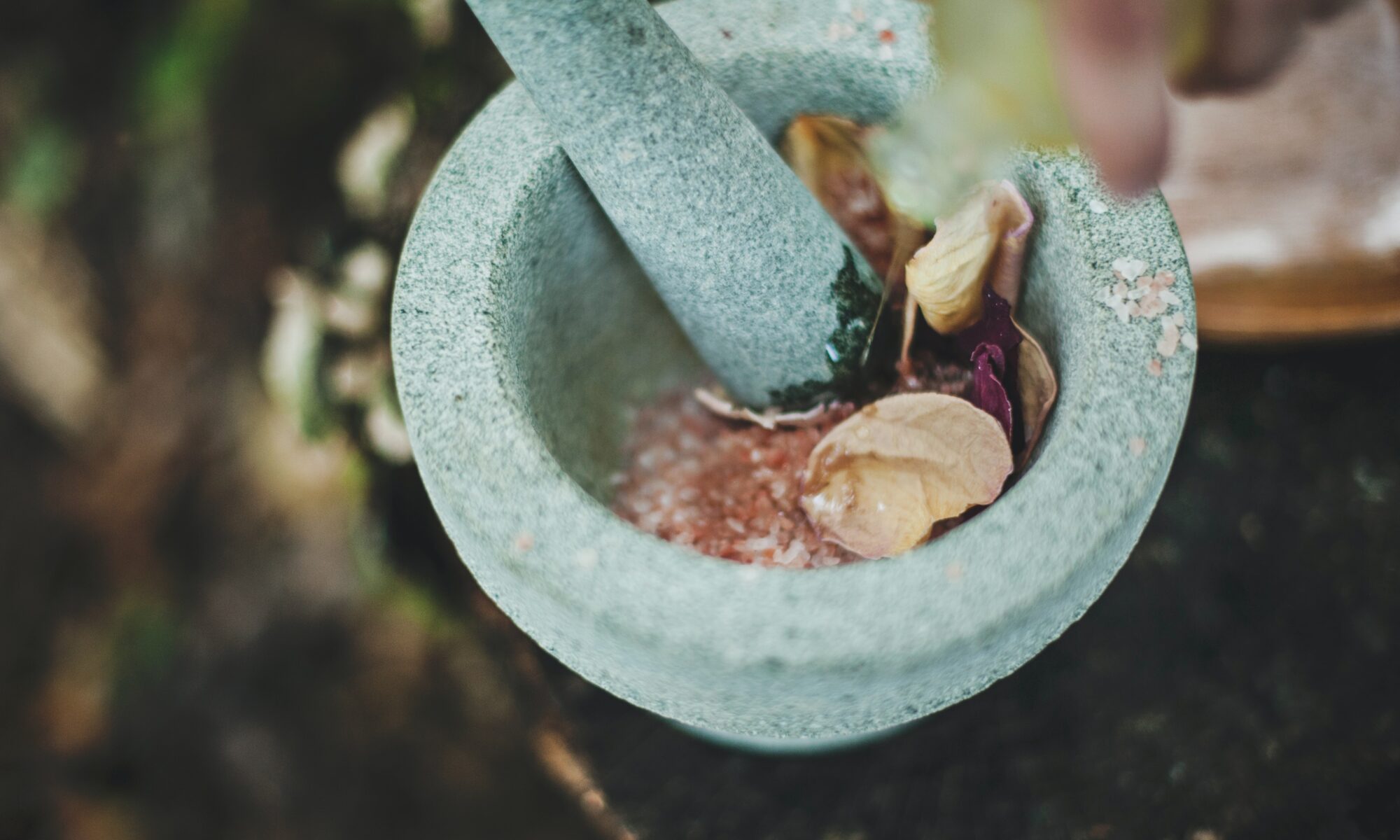Have you heard some buzz about oxalates in spinach and other leafy vegetables? A theory that’s been gaining popularity among those interested in nutrition is that we should avoid greens, especially spinach, because they are high in oxalates. After all, oxalates can cause kidney stones or gallbladder problems and may interfere with calcium absorption.
So, one of the latest and greatest trendy dietary recommendations is to STOP eating foods high in oxalates, especially for people with oxalate sensitivity. As a result, spinach, kale, and many green oxalate-containing foods have become public enemy number one! Should you take heed? Is it time to eliminate leafy greens from your healthy diet because of the oxalates in spinach? The short answer to this question is a resounding “NO!”. But, let’s check out why.
Organic Herbs or Wild Herbs – What You Should Know
What’s the difference between organic herbs and wild herbs?
Organic herbs are organically grown based on the regulations and certification requirements of the country where they are cultivated.
Some countries, like the United States and Europe, have strict requirements for herbs and other foods to be organic.
Continue reading “Organic Herbs or Wild Herbs – What You Should Know“What Plants Can Teach About Love
Talking About “Love in Action” In Celebration of Earth Day
Plants can teach about love? How’s that? Anyone who is not an herbalist, botanist, gardener, or houseplant addict might find that to be a very strange assertion.
But plants can teach about love. Which is what I want to talk to you about today.
Continue reading “What Plants Can Teach About Love”In Death and Grief We Find Love
Reflections for Easter, Passover, and Spring
By Donnie Yance
Just before Christmas, I lost my youngest sister Gi Gi, to a sudden accident. She was in a coma for several weeks prior to her transition. As my sister hovered between life and death, I found myself in a deep state of grief and reflection. A reflection on birth, life, death, and the embracing of the great mystery. I choose to call the great mystery Love, or, better stated, Agape Love.
Continue reading “In Death and Grief We Find Love“16 Herbs Scientifically Shown to Be Powerful Allies for Those with Parkinson’s
Herbs to treat Parkinson’s disease: Many important herbs are effective in supporting people with Parkinson’s disease. I will walk you through some of these herbs and other natural compounds that can help you or a loved one facing this disease.
What is Parkinson’s Disease?
Parkinson’s disease (PD) is the second most common age-related neurodegenerative disease facing middle-aged and older adults.
In 1817, James Parkinson wrote the first description of PD. Also known as idiopathic paralysis agitans, Parkinson’s disease affects the central nervous system. About 1% of those over the age of 65 suffer from it. According to the Global Burden of Disease survey, in 2017, there were 1.02 million new cases of PD.[1] Globally, 6.1 million PD patients were recorded in 2016.[2]
What Causes Parkinson’s Disease?
Continue reading “”Important Research: mRNA COVID-19 Vaccines Detected in Human Breast Milk
Public health authorities, celebrities, journalists, media personalities, and content providers of all kinds have drummed a message into the public’s ears for nearly three years now: Vaccination is the number one tool in the medical toolbox for fighting the COVID-19 pandemic.
More often than not, if you choose not to get yourself or your children vaccinated against COVID-19, you’re accused of being “selfish,” “stupid,” or “anti-science.” Family members who chose to get vaccinated continue to bar their unvaccinated loved ones from their homes. Neighbors and friends continue to be estranged over this issue. The YMCA in Berkeley, California, for example, still will not allow unvaccinated children into their facility.
Discrimination against those who have preferred to get immunity from COVID-19 via natural infection instead of vaccine-acquired antibodies continues. Meanwhile, the most comprehensive meta-analysis study to date, just published in The Lancet, summarizes the evidence on the durability of natural immunity protection from prior COVID-19 infection.[1]
- Pooled analysis from 65 studies from 19 countries assessing the extent of protection following COVID-19 infection by variant and how durable that protection is against different variants.
- For people who have been infected with COVID-19 at least once before, natural immunity against severe disease (hospitalization and death) was strong and long-lasting for all variants (88% or greater at 10 months post-infection).
- Past infection with pre-Omicron variants provided substantially reduced natural immunity protection against reinfection with Omicron BA.1 (36% at 10 months after infection).
Long-term Side Effects of mRNA COVID-19 Vaccines Unknown
Aside from the immediate vaccine adverse reactions like anaphylactic shock or SIRVA, other concerns surrounding these mRNA COVID-19 vaccines are that we simply don’t know what the long-term side effects are. Of particular concern are the side effects of vaccines given to pregnant women and young children.
A troubling fact is that the initial messenger RNA vaccine clinical trials did not include several vulnerable groups, including lactating moms.
Not Recommended for Infants Under Six Months Old
Because of this, the U.S. Food and Drug Administration did not immediately authorize COVID-19 mRNA vaccines for infants younger than six months. Instead, they initially deferred authorization until they had more data to make a scientifically sound recommendation.
Currently, the CDC recommends mRNA COVID-19 vaccines for everyone in America six months of age and older. In information it puts out to parents, the American Academy of Pediatricians specifies that a baby should get two doses of the original vaccine and a “booster” (a third injection) of an updated vaccine.
The mRNA COVID-19 vaccines are not approved for infants younger than six months of age, yet, the Centers for Disease Control and Prevention and the American Academy of Pediatricians recommend offering the COVID-19 mRNA vaccines to breastfeeding moms despite the fact that vaccine mRNAs may pass to infants via their mothers’ breast milk. In fact, they promote this as a benefit, stating that “protective antibodies can pass to the baby and provide immunity until they become eligible to get vaccinated”. Nowhere do they caution that vaccine-derived mRNA in the mother’s milk could result in a potentially unsafe exposure for a newborn or months-old baby.
New Study: mRNA Detected in Breast Milk Up to 45 Hours After Maternal Vaccination
In a recent study, a team of scientists investigated whether the COVID-19 vaccine mRNA can be detected in the expressed breast milk of lactating moms who received COVID-19 vaccines within six months of delivering their babies.
The study, done by a team of seven scientists based in New York, “Detection of Messenger RNA COVID-19 Vaccines in Human Breast Milk,” was published in September 2022 in the form of a research letter.
Within six months of having their babies, five healthy breastfeeding women received the Moderna mRNA vaccine and six received the Pfizer BNT162b2 vaccine. They were then asked to collect and freeze their breastmilk, which they stored at home until it could be transported to the laboratory. Expressed breast milk samples were collected before vaccination and for five days after vaccination. The scientists analyzed a total of 131 breast milk samples after vaccination.
Both BNT162b2 and mRNA-1273 were detected in seven samples from five different women. The presence of vaccine-derived mRNA was found up to 45 hours after vaccination. In other words, detectable amounts of mRNA were found in breastmilk nearly two days after the mother received a vaccine.
The scientists specify in their discussion of these results that “the sporadic presence of trace quantities of COVID-19 vaccine mRNA detected in expressed breast milk suggest that breastfeeding after COVID-19 mRNA vaccination is safe, particularly beyond 48 hours…”
Caution is Warranted
However, they also say that “caution is warranted about breastfeeding children younger than six months in the first 48 hours after maternal vaccination” and that the potential interference—or interaction—between routine vaccines given to infants and mRNA vaccines also “needs to be considered.”
No Amount of mRNA Safe for Babies
No amount of mRNA has been found safe for infants under six months of age. This study suggests the opposite of the author’s conclusions. Given that detectable amounts of vaccine-derived mRNA are showing up in some breast milk, the science-based evidence-forward approach would be to not recommend that breastfeeding women get these mRNA vaccines.
About the Author:
Donald R. Yance is the founder of the Mederi Center. A Clinical Master Herbalist and Certified Nutritionist, Donnie is renowned for his extraordinary knowledge and deep understanding of the healing properties of plants and nutrition, as well as of epigenetics, laboratory medicine, oncologic pathology, and molecular oncology. He is a professional member of the American Herbalists Guild, National Association of Nutrition Professionals, Academy of Integrative Health and Medicine, and the Society for Integrative Oncology.
References:
[1] Caroline Stein, Hasan Nassereldine, Reed J D Sorensen, Joanne O Amlag, Catherine Bisignano, Sam Byrne, Emma Castro, Kaleb Coberly, James K Collins, Jeremy Dalos, Farah Daoud, Amanda Deen, Emmanuela Gakidou, John R Giles, Erin N Hulland, Bethany M Huntley, Kasey E Kinzel, Rafael Lozano, Ali H Mokdad, Tom Pham, David M Pigott, Robert C Reiner Jr., Theo Vos, Simon I Hay, Christopher J L Murray, Stephen S Lim, Past SARS-CoV-2 infection protection against re-infection: a systematic review and meta-analysis, The Lancet, 2023, ISSN 0140-6736, https://doi.org/10.1016/S0140-6736(22)02465-5.(https://www.sciencedirect.com/science/article/pii/S0140673622024655), www.thelancet.com PublishedonlineFebruary16,2023 https://doi.org/10.1016/S0140-6736(22)02465-5
Continue reading “Important Research: mRNA COVID-19 Vaccines Detected in Human Breast Milk”







